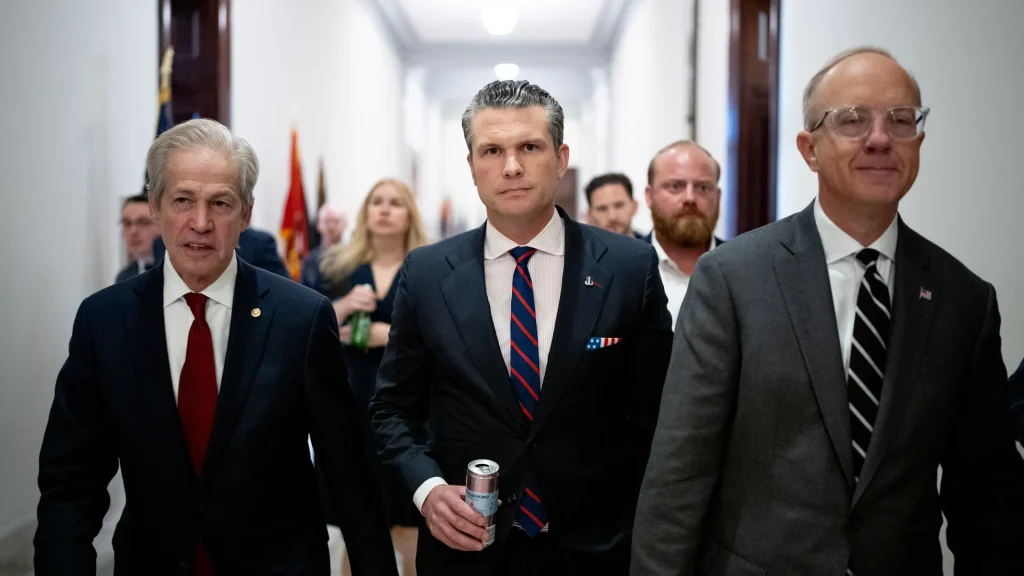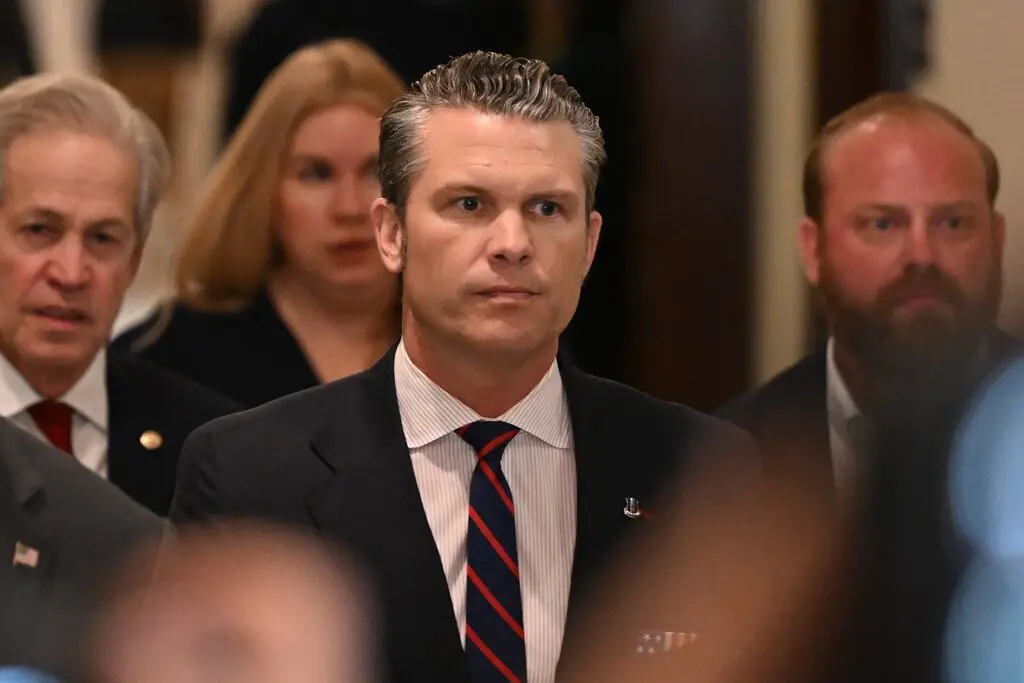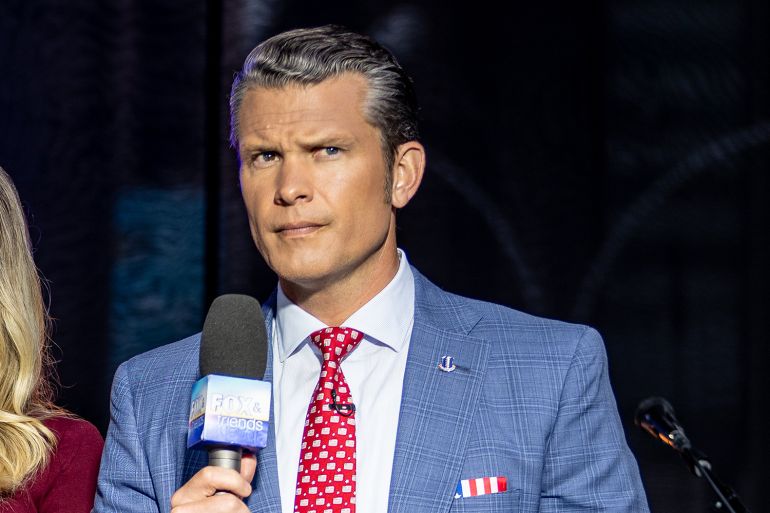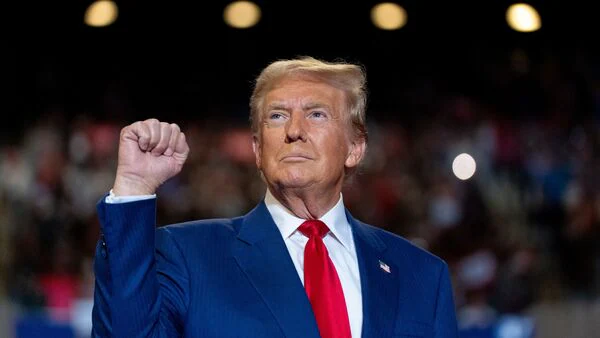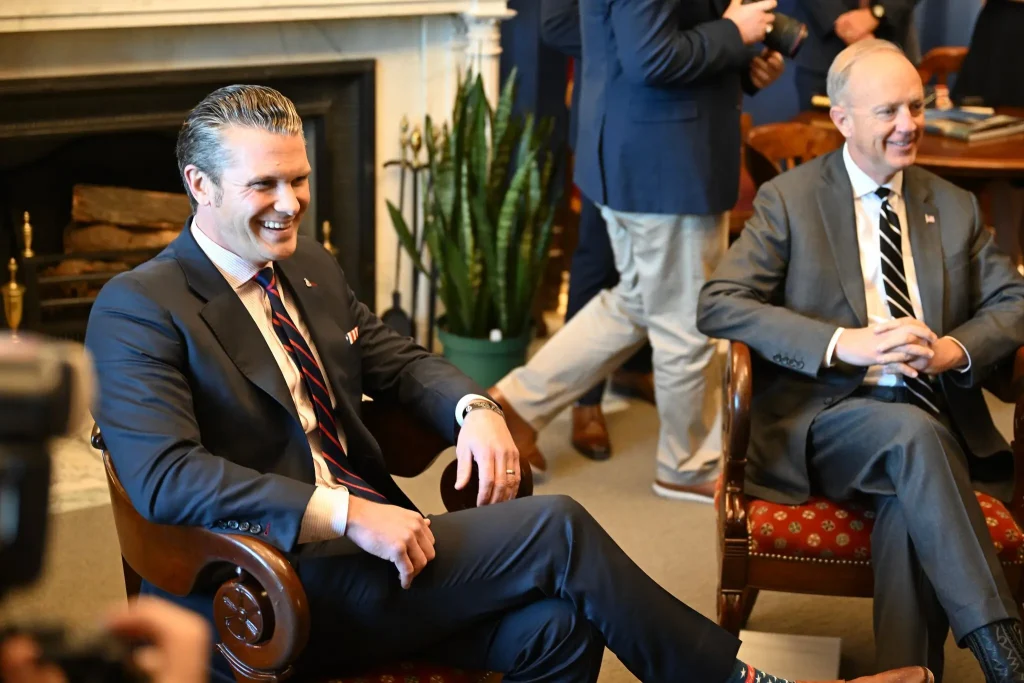Hegseth Says He Won’t Withdraw as He Struggles as Trump’s Defense Pick

In a developing story surrounding President Donald Trump’s administration, Pete Hegseth, a prominent conservative media personality, has insisted that he will not withdraw from his position as a potential nominee for Secretary of Defense, despite facing significant pressure and challenges. Hegseth, a former military veteran and frequent Fox News commentator, had been under consideration for the Defense role, a key cabinet position in the Trump administration. However, his appointment has raised concerns within some political circles, both inside and outside of the Republican Party, due to his political and media background rather than military or defense leadership experience.
Background of the Appointment
Hegseth has built a career as a vocal advocate for conservative values, military strength, and nationalism. His tenure at Fox News, where he served as a co-host of “Fox & Friends Weekend,” has made him a well-known figure in conservative media. Throughout his career, Hegseth has been outspoken on issues ranging from veterans’ affairs to American military presence overseas. His advocacy for a robust national defense and military-focused policies has earned him praise from Trump’s base.
However, his nomination as the next Secretary of Defense is controversial for several reasons. Critics argue that his experience as a television personality does not qualify him to lead the Pentagon, a massive institution responsible for overseeing the U.S. military, defense policies, and global security matters. While he served in the National Guard and has been vocal about veterans’ issues, many in Washington question whether his public persona can translate into effective leadership at such a crucial and demanding level.
Resistance and Struggles with the Appointment
As Hegseth navigates the vetting process, he faces resistance from both political opponents and even some within his own party. Key figures in the Senate have expressed doubts about his qualifications and his ability to handle the complex issues involved in managing national defense, military strategy, and international relations. The role of Secretary of Defense is considered one of the most important positions in any administration, requiring a deep understanding of global geopolitics, military tactics, and the ability to manage crises effectively. Critics of Hegseth’s nomination have questioned whether his background in television and his partisan political views make him an ideal candidate.
Hegseth has remained steadfast in his commitment to the position, dismissing calls for him to step down and insisting that he is fully prepared to take on the responsibilities of the role. He has emphasized his experience as a military veteran and his long-standing advocacy for a strong national defense as qualifications for the job. Despite these reassurances, many remain unconvinced, suggesting that his lack of a military leadership background could hinder his ability to manage the Pentagon effectively.
Political Implications of the Nomination
The nomination of Pete Hegseth comes at a critical time in American politics. The Trump administration has been facing increasing scrutiny, particularly with regard to its handling of national security issues and military strategies. The Pentagon, under President Trump, has been at the center of numerous debates, including the handling of military interventions in the Middle East, the U.S. response to threats from North Korea and Iran, and the ongoing conflict in Afghanistan.
Hegseth’s nomination, then, is not just a question of individual qualifications, but also a reflection of the broader political landscape. If confirmed, he would become a key player in shaping the future of U.S. military policy, which has far-reaching implications for both domestic and international security. His supporters argue that his conservative viewpoints align with Trump’s “America First” agenda and that his leadership could ensure the continued prioritization of U.S. military strength and readiness.
However, his detractors are concerned that appointing a media personality without substantial military leadership experience could lead to a lack of credibility within the defense establishment and jeopardize national security. These concerns are amplified by the fact that national security issues often require a nuanced, bipartisan approach, and Hegseth’s strong partisan leanings could undermine the credibility of the Department of Defense.
Public and Media Reaction
Hegseth’s media background has both helped and hindered his nomination. His widespread recognition and popularity among conservative voters have garnered significant support from Trump’s base. Many of Hegseth’s fans argue that his strong communication skills and public profile would be valuable assets in leading the Pentagon and advocating for defense-related policies.
On the other hand, his past statements and political affiliations have sparked controversy. Hegseth has been criticized for making inflammatory remarks on various issues, including his stance on veterans’ affairs, his opposition to the U.S. military’s involvement in foreign interventions, and his comments about American foreign policy. These positions have led some to question whether he could represent the interests of the entire nation and work cooperatively with military leaders, policymakers, and foreign allies.
In addition to the public scrutiny, Hegseth faces challenges within the media landscape. Some analysts have noted that his time spent in front of the camera has cultivated a polarizing public image, making it harder for him to gain support from individuals outside the conservative circle. This could create difficulties for him as he works to build relationships with military leaders, lawmakers, and international counterparts.
As of now, Pete Hegseth has made it clear that he has no intention of withdrawing from consideration as Trump’s pick for Secretary of Defense. He is committed to serving his country in this capacity and believes that his unique perspective and approach to national defense will benefit the nation. However, the path ahead remains uncertain, as the nomination still faces significant opposition, both from within Washington and from the American public.
The fate of Hegseth’s nomination will likely be decided in the coming weeks as Senate hearings and additional vetting processes unfold. Whether or not Hegseth can convince lawmakers, military leaders, and the public that he is the right person for the job remains to be seen. The challenges he faces are a reflection of the broader debate in the U.S. about the role of media personalities in politics and governance, and whether their skills and experiences are sufficient to navigate the complexities of positions of power.
Ultimately, Hegseth’s nomination will be a test of whether experience in media, political advocacy, and military service can be enough to lead one of the most important and powerful departments in the U.S. government. It will also serve as a reminder of the difficult decisions and challenges that come with appointing individuals to positions of immense responsibility, particularly in an era of heightened political polarization and global instability.


